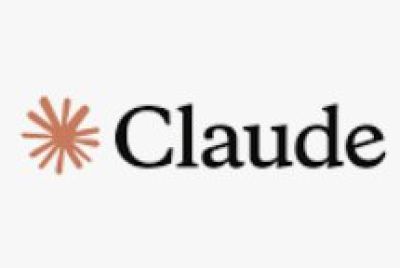Australian Stock Market Report – Afternoon 8/24/2012
MARKET CLOSE
(4.30pm AEST)
The Australian sharemarket maintained its losses throughout the afternoon, to end lower for the third time this week. Despite the pullback, the local market has still improved for seven of the past nine trading weeks. Shares have jumped by 2 pct so far this month and are adding to July's 3.7 pct gains.
Yesterday, David Jones (DJS) said that sales at its stores fell 4.6 pct last year. Today, iconic Australian music retailer, Allans Music in addition to Billy Hyde has been placed into receivership due to a high level of debt. It is now up for sale; both brands make up around 25 pct of the country's market share in sales; has 500 employees across 25 stores and began operating in the 1850s.
The miners didn't improve much throughout the day, with the S&P/ASX 200 Materials Index down 1.42 pct or 140.1 pts to 9716.4. Australia's second largest miner, Rio Tinto (RIO) slumped by 4.39 pct or $2.38 to $51.80 while the larger BHP Billiton (BHP) lost 0.96 pct or 32 cents to $33.09.
The major banks all ended in the red, with ANZ Banking Group (ANZ) the worst performer after slipping 0.92 pct or 23 cents to $24.77. National Australia Bank (NAB) fell 0.67 pct or 17 cents to $25.14, while both Commonwealth Bank of Australia (CBA) and Westpac (WBC) eased by close to 0.5 pct.
The profit reporting season is now starting to wind down, with a smaller number of businesses announcing earnings today.
Australia's largest supermarket chain, Woolworths (WOW) issued a $1.81 billion Net Profit After Tax (NPAT). The company's Chief Executive Grant O'Brien said that ´´Despite some of the toughest retail conditions in many years I am satisfied that we have delivered both true value to our customers through lower prices and solid profit growth for our shareholders.´´ Woolies has over 870 supermarkets across the country.
NSW based coal miner, Whitehaven Coal (WHC) came in broadly in-line with its profit expectations for the 12 months to June 2012. NPAT was $57.8 million, while the market was expecting a profit of around $55.8 million. WHC said today that growth trends for key coal markets are positive, especially into China & India but the economic slowdown and supply increases are impacting prices. WHC shares ended 11.2 pct or 39 cents lower to $3.09. WHC shares are down 36 pct this year.
Surfwear retailer Billabong (BBG) has delayed its results announcement until next Monday. It was initially expected to report today. BBG shares have had a horrid run over the past few years. Its shares fell 4.9 pct this year, 78 pct last year and 25 pct in 2010.
Next week, Toll Holdings, Caltex, Flight Centre, Transfield Services, WorleyParsons & Lend Lease issue profit results.
There was a lack of economic news out today, however the Reserve Bank Governor, Glenn Stevens had his semi-annual testimony before the House Economics Committee. He essentially answered the questions of a number of parliamentarians (questions and answers), after reading a prepared speech.
In his prepared speech, Governor Stevens said that "Looking back, then, the economy appears to have been recording reasonable overall growth, relatively low unemployment, and low inflation. Looking ahead, the peak of the resource investment boom as share of GDP - the highest such peak in at least a century - will occur within the next year or two. After that the rate of resource investment is likely to decline, while the export shipments of the resources themselves will pick up. By then we might expect that some other sectors that have been weak of late, like residential and non-residential construction, might be starting to pick up. Overall, growth is forecast still to be close to trend, albeit with a different composition from that seen in the past year or two, and inflation consistent with the target."
CommSec's Chief Economist, Craig James said that "If the Reserve Bank Governor wanted to let us in on a secret, today would have been the day to do it. He didn't. There were no fresh insights, and no new concerns. Even in terms of the Aussie dollar, the Governor indicated that it was high, but not dramatically so. In an economic sense, some would suggest that it was all a bit boring. But it is a good form of boring; a form of boring that can assure businesses and consumers. In fact the Governor believes our economy is as good now as it has ever been. That view is certainly not new as the Governor has been trying to get the community to see the glass as "half full" rather than "half empty"."
Next week, the latest building approvals report will be issued for July in addition to private sector credit, a quarterly business spending report and a document on the amount of completed construction work over the June quarter (April to June).
In the region today, no major economic news was issued from the larger Asian economies. All sharemarkets across the region pulled back today, with shares in South Korea down by 1.32 pct. Average household debt per South Korean household has now jumped to around 164 pct of disposable income, while defaults on home loans has also worsened to the worst levels in three years.
Next week, most economic news in the region will be issued in Japan and New Zealand. On Thursday, a business confidence report will be released at 11am (AEST) in New Zealand. On Friday, a number of reports will be issued in Japan, including: the Consumer Price Index (inflation), the unemployment rate, and industrial production data.
In Europe tonight, no major data is scheduled for release however; revised quarterly GDP (growth) will be out at 6.30pm (AEST) and is likely to record a 0.5 pct contraction in its economy.
Next week in Europe, the latest European unemployment rate will be issued at 7pm (AEST) on Friday and is likely to remain around 11.2 pct. German retail sales data will be out in the latter part of the week, while a report on German consumer confidence will be issued on Tuesday night.
In the U.S tonight, the change in the value of durable goods orders will be issued for July. A 1.3 pct improvement is expected. This includes goods with a lifespan of more than three years, such as equipment, cars and aircraft. The data is considered to be a leading indicator of a production because an increase in orders is a sign that manufacturers will increase activity to fill those orders.
Next week, the Federal Reserve Chairman, Ben Bernanke will be delivering a speech on Friday at Jackson Hole, which is the annual get-together of central banks from around the world.
Volume of shares traded came in at 1.67 billion today, worth $4.08 billion. 390 shares were up, 525 were weaker and 340 ended unchanged.
At 4.30pm AEST on the Sydney Futures Exchange, the ASX24 futures contract is down 0.82 pct or 36 pts to 4332.
Due to daylight savings, most major European markets are now trading between 5pm (AEST) and 1.30am (AEST). Futures are currently pointing to a weaker start to trade.
U.S futures are also pointing to a better start to trade tonight. Due to daylight savings taking place in the second week of March in North America and the end of daylight savings in Australia, U.S markets will now be trading between 11.30pm (AEST) and 6am (AEST).
Turning to currencies, the Australian dollar (AUD) is trading lower against the greenback. The AUD buys US104.1 cents, is trading at £65.6 pence and €83.03 cents.
Australia is a commodity based economy, with commodities in general account for almost 80 pct of all our exports over the past nine months. In essence, when the going gets tough globally, there is fear of less demand for our commodities, which tends to result in a weaker AUD.
[Kick off your trading day with our newsletter]
More from IBT Markets:
Follow us on Facebook
Follow us on Twitter
Subscribe to get this delivered to your inbox daily




















